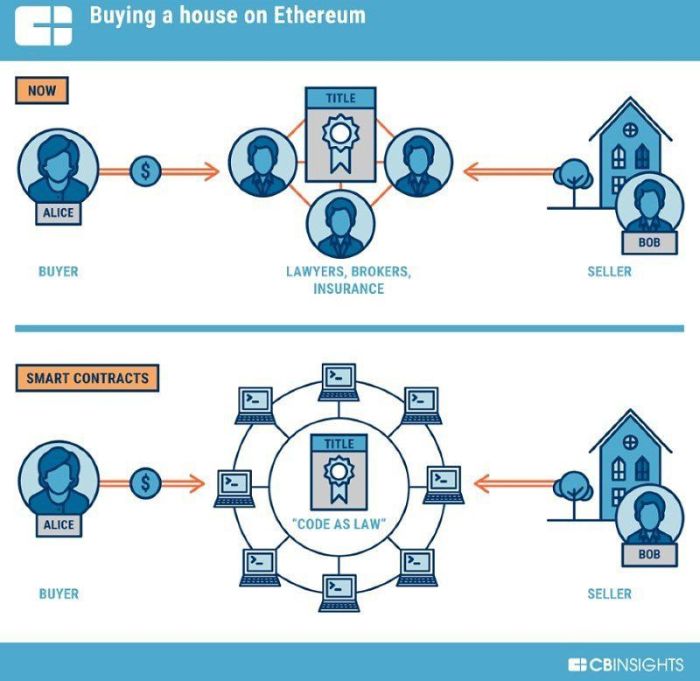Ethereum smart contracts are changing the game in contract management. Imagine a world where agreements are automated, secure, and efficient, all thanks to the power of blockchain technology. Let’s dive into the fascinating realm of Ethereum smart contracts and explore their impact on various industries.
What are Ethereum smart contracts?

Ethereum smart contracts are self-executing contracts with the terms of the agreement directly written into code. These contracts run on the Ethereum blockchain and automatically execute actions when certain conditions are met.
Unlike traditional contracts that require intermediaries and manual enforcement, Ethereum smart contracts are decentralized and operate based on predetermined rules without the need for a trusted third party. This ensures transparency, security, and efficiency in executing agreements.
Real-world applications of Ethereum smart contracts
- Decentralized Finance (DeFi): Smart contracts are widely used in DeFi applications for lending, borrowing, and trading without the need for traditional financial institutions.
- Supply Chain Management: Smart contracts can track and verify the authenticity of products throughout the supply chain, reducing fraud and improving transparency.
- Token Sales: Initial Coin Offerings (ICOs) and Security Token Offerings (STOs) use smart contracts to automate the token sale process and ensure compliance with regulations.
- Real Estate Transactions: Smart contracts can facilitate real estate transactions by automatically transferring ownership rights once the conditions of the contract are met.
How do Ethereum smart contracts work?

Ethereum smart contracts operate on the blockchain network, allowing for secure and automated transactions without the need for intermediaries.
Creating and Executing Ethereum Smart Contracts
- Developers write the code for smart contracts using Solidity, a programming language specifically designed for Ethereum.
- Once the code is written, it is deployed onto the Ethereum blockchain, becoming immutable and accessible to all network participants.
- Users can interact with the smart contract by sending transactions to its address, triggering the execution of predefined functions.
- Smart contracts automatically enforce the terms of the agreement, eliminating the need for manual intervention and reducing the risk of fraud.
Role of Blockchain Technology in Smart Contracts
- Blockchain technology ensures transparency and security by recording all transactions in a decentralized ledger that is distributed across multiple nodes.
- Each transaction is verified by network participants through a process called consensus, ensuring the integrity of the data stored on the blockchain.
- Immutability of the blockchain prevents tampering with the smart contract code or transaction history, providing a reliable and trustworthy system for executing agreements.
Self-Executing Codes in Ethereum Smart Contracts
- Smart contracts contain self-executing codes that automatically trigger actions when predefined conditions are met.
- These codes eliminate the need for intermediaries or third parties to enforce the terms of the contract, streamlining the execution process.
- Once deployed, smart contracts operate autonomously, executing transactions based on the predefined rules encoded in the contract.
Advantages of Ethereum smart contracts
Smart contracts built on the Ethereum blockchain offer numerous advantages over traditional contracts, providing increased security, cost-effectiveness, and efficiency in various industries.
Enhanced Security Features
Ethereum smart contracts utilize blockchain technology to ensure transparency, immutability, and decentralization. Once deployed, these contracts cannot be altered, providing a secure and tamper-proof way to execute agreements. The cryptographic algorithms used in Ethereum smart contracts enhance data security and protect sensitive information from unauthorized access or manipulation.
Cost-Effectiveness and Efficiency
By automating contract execution and eliminating the need for intermediaries, Ethereum smart contracts reduce operational costs associated with traditional contract management. Smart contracts execute automatically when predefined conditions are met, streamlining processes and reducing the time required to finalize agreements. This increased efficiency translates to cost savings for businesses across industries, making Ethereum smart contracts a preferred choice for organizations looking to optimize their operations.
Challenges and limitations of Ethereum smart contracts
Implementing Ethereum smart contracts can come with its own set of challenges and limitations. Let’s explore some of the common issues faced in this domain.
Scalability issues in Ethereum smart contracts
- One major challenge with Ethereum smart contracts is scalability. As the number of transactions on the Ethereum network increases, the system may face congestion, leading to slower transaction speeds and higher fees.
- Scalability issues can also affect the performance of smart contracts, causing delays in contract execution and impacting overall user experience.
- Developers are actively working on solutions like Ethereum 2.0 to address scalability concerns, but it remains a significant challenge for the platform.
Potential security risks associated with Ethereum smart contracts
- Security is a major concern when it comes to Ethereum smart contracts. Vulnerabilities in the code can be exploited by malicious actors to manipulate the contract and siphon funds.
- Common security risks include reentrancy attacks, where a contract can be repeatedly called before the previous call is completed, and integer overflow/underflow vulnerabilities.
- To mitigate security risks, developers need to follow best practices like code audits, formal verification, and implementing secure coding standards.
- Regularly updating and auditing smart contracts is crucial to ensure the security and integrity of the system.
